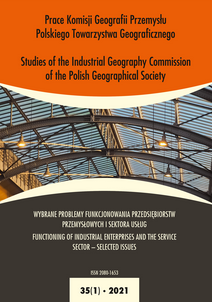Rola klastrów w procesie internacjonalizacji
The role of clusters in internationalisation process
Author(s): Gabriela CzapiewskaSubject(s): National Economy, Business Economy / Management, Economic policy, International relations/trade, Economic development
Published by: Wydawnictwo Uniwersytetu Komisji Edukacji Narodowej w Krakowie
Keywords: cluster; innovation; internationalisation; knowledge-based economy;
Summary/Abstract: In the modern world, the economic development is created mainly by two factors: knowledge and innovation. The main tool of innovation support is a cluster. The basic factor determining the level of innovation in the economy is the ability to cooperate with individual business entities. Since the 1990s, it has been frequently emphasized that clusters provide almost perfect conditions for the development of innovative processes. They may play an important role in generating and accelerating innovation processes and act as growth poles for regional, national and international economy. An important trend in the development of cluster initiatives, which is now becoming more and more important, is their internationalisation which is dynamically progressing. Internationalisation of clusters is reflected in the strategic documents and is supported by the economic policy. The aim of the article is to indicate contemporary conditions for the development of innovative integration connections and to present the processes of internationalisation of clusters. The study presents the concepts of the cluster and definition standards, as well as the achievements of the policy of supporting clusters, including their internationalisation. The added value of the article is the analysis of the importance of cluster cooperation for the internationalisation of enterprises. The study illustrates the existing relationships between clustering and internationalisation. To achieve the goal, a query of domestic and foreign literature in the field of research issues, as well as analysis of secondary sources of information were used. The issues discussed in the article may constitute a starting point for further in-depth research.
Journal: Prace Komisji Geografii Przemysłu Polskiego Towarzystwa Geograficznego
- Issue Year: 35/2021
- Issue No: 1
- Page Range: 26-43
- Page Count: 18
- Language: Polish

